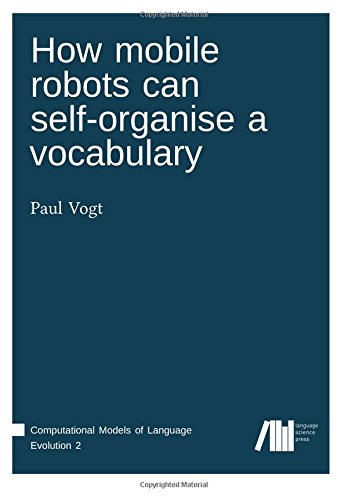
How Mobile Robots Can Self-organise a Vocabulary
by Paul Vogt
Publisher: Language Science Press 2015
ISBN/ASIN: 3946234011
ISBN-13: 9783946234012
Number of pages: 286
Description:
This book presents a series of experiments in which two robots try to solve the symbol grounding problem. The experiments are based on the language game paradigm, and involve real mobile robots that are able to develop a grounded lexicon about the objects that they can detect in their world.
Download or read it online for free here:
Download link
(2.6MB, PDF)
Similar books
 Language, Proof and Logic
Language, Proof and Logicby Jon Barwise, John Etchemendy - Center for the Study of Language
The book covers the boolean connectives, formal proof techniques, quantifiers, basic set theory, induction, proofs of soundness and completeness for propositional and predicate logic, and an accessible sketch of Godel's first incompleteness theorem.
(20798 views)
 Natural Language Processing for Prolog Programmers
Natural Language Processing for Prolog Programmersby Michael A. Covington - Prentice-Hall
Designed to bridge the gap for those who know Prolog but have no background in linguistics, this book concentrates on turning theories into practical techniques. Coverage includes template and keyword systems, definite clause grammars, and more.
(11089 views)
 Natural Language Processing Succinctly
Natural Language Processing Succinctlyby Joseph D. Booth - Syncfusion, Inc.
Author will guide readers through designing a simple system that can interpret and provide reasonable responses to written English text. With this foundation, readers will be prepared to tackle the greater challenges of natural language development.
(6111 views)
 Natural Language Processing with Python
Natural Language Processing with Pythonby Steven Bird, Ewan Klein, Edward Loper - O'Reilly Media
This book offers a highly accessible introduction to natural language processing, the field that supports a variety of language technologies. With it, you'll learn how to write Python programs that work with large collections of unstructured text.
(17192 views)